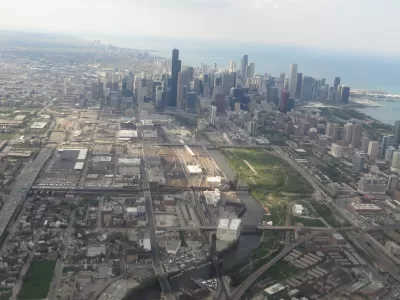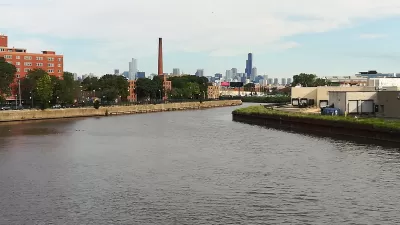Assurances that the plan will not include large commercial venues have not calmed fears about the future of local independent clubs.

The proposed Lincoln Yards project in Chicago still has local music venue operators on edge, reports Greg Kot. While the original plan to allow a soccer stadium and entertainment district has been scrapped, critics say that the city is not releasing details about what will happen with the development.
They say venues housing up to 10,000 seats could still come in and displace local clubs, and a large corporation such as AEG or Live Nation would control them. "In interviews with a dozen club owners and members of the music community across Chicago, all felt blind-sided by the project, which came into view less than a year ago," says Kot.
Additionally, the city’s willingness to fund the project through tax increment financing has left club owners feeling that they are not part of the planning process. They are working with CIVL, a consortium of independent performance venues, to stop the project from moving forward until the new city administration comes on board in May, after next month’s mayoral election.
FULL STORY: Analysis: Latest Lincoln Yards twist only ratchets up music club owners' anxiety

Maui's Vacation Rental Debate Turns Ugly
Verbal attacks, misinformation campaigns and fistfights plague a high-stakes debate to convert thousands of vacation rentals into long-term housing.

Planetizen Federal Action Tracker
A weekly monitor of how Trump’s orders and actions are impacting planners and planning in America.

In Urban Planning, AI Prompting Could be the New Design Thinking
Creativity has long been key to great urban design. What if we see AI as our new creative partner?

King County Supportive Housing Program Offers Hope for Unhoused Residents
The county is taking a ‘Housing First’ approach that prioritizes getting people into housing, then offering wraparound supportive services.

Researchers Use AI to Get Clearer Picture of US Housing
Analysts are using artificial intelligence to supercharge their research by allowing them to comb through data faster. Though these AI tools can be error prone, they save time and housing researchers are optimistic about the future.

Making Shared Micromobility More Inclusive
Cities and shared mobility system operators can do more to include people with disabilities in planning and operations, per a new report.
Urban Design for Planners 1: Software Tools
This six-course series explores essential urban design concepts using open source software and equips planners with the tools they need to participate fully in the urban design process.
Planning for Universal Design
Learn the tools for implementing Universal Design in planning regulations.
planning NEXT
Appalachian Highlands Housing Partners
Mpact (founded as Rail~Volution)
City of Camden Redevelopment Agency
City of Astoria
City of Portland
City of Laramie




























